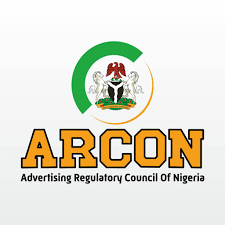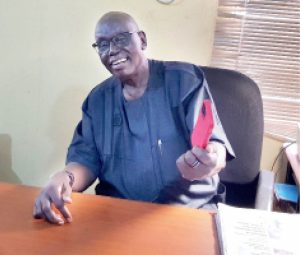
…urges stakeholders to prioritise compliance
By Tunji Faleye
The Advertising Regulatory Council of Nigeria (ARCON) has reiterated that its regulatory activities are not intended to hinder creativity within the advertising industry but to ensure that all practitioners and stakeholders operate within the boundaries of responsible and ethical advertising.
This assurance was given by the Director General of ARCON, Dr. Olalekan Fadolapo, during the Advertising Standards Panel (ASP) Stakeholders’ Forum, which was held on Thursday at Sheba Events Centre in Lagos. Dr. Fadolapo emphasised that while creativity is encouraged, stakeholders must understand the line between innovation and responsibility in advertising.
According to him, “Stakeholders need to know when creativity crosses the line of responsible advertising, and that ARCON and ASP will not allow anyone just because of creativity to set the country on fire.”
Meanwhile, stakeholders within Nigeria’s advertising industry, under the platform of the Heads of Advertising Sectoral Groups (HASG), have appealed to ARCON to ensure a level playing field by enforcing regulations equally across both local players and global digital platforms. They also urged the council to formulate agile, technology-driven regulatory structures tailored to the rapidly advancing digital advertising ecosystem.
Delivering the keynote address at the forum, Lanre Adisa, President of the Association of Advertising Agencies of Nigeria (AAAN) and Chairman of HASG, commended ARCON for its progress under the leadership of Dr. Fadolapo. However, he stressed the urgent need for reforms to bring Nigeria’s advertising regulatory environment up to global standards in line with modern industry realities.
Adisa pointed out that international platforms such as Google, Meta, and YouTube—currently operating outside ARCON’s regulatory scope—continue to command the lion’s share of Nigeria’s advertising expenditure, leaving local agencies to shoulder the burden of regulatory compliance.
“Global platforms and foreign agencies running campaigns in Nigeria must be subject to the same rules as local players,” Adisa said.
He further encouraged ARCON to strengthen collaboration with other relevant regulatory agencies to promote fairness in the industry and correct existing regulatory gaps, particularly in the oversight of digital campaigns. Adisa noted that treating digital advertising with the same processes as traditional media has created significant operational bottlenecks, affecting campaign efficiency, client confidence, and return on investment.
“Digital campaigns often require vetting similar to traditional media, despite the rapid turnaround of digital. This leads to delays and when not well managed, frustration,” he said.
Adisa also drew attention to the operational difficulties associated with ARCON’s drive to prioritise local content, particularly the surcharges on foreign models and stock images. While supporting the initiative’s long-term objectives, he stressed the importance of balancing it with the practical realities faced by advertising agencies.
As part of his recommendations, Adisa called for the creation of clear and distinct digital advertising guidelines that reflect modern content consumption patterns. He proposed a co-regulation framework, where responsibility for compliance is shared between regulators, digital platforms, and agencies, citing the successful implementation of similar models in countries like the United Arab Emirates.
Further suggestions included regular updates to the Advertising Code, setting up an industry sandbox for testing new advertising formats, and establishing a dedicated Digital Advertising Council comprising sectoral groups, digital platforms, and consumer advocacy organisations.
Adisa also emphasised the need for equal enforcement of compliance rules, particularly regarding foreign platforms benefiting from Nigeria’s advertising market. He proposed robust accountability mechanisms to ensure that both local and international players are held to the same standards.
Additionally, he encouraged ARCON to adopt faster, technology-driven regulatory processes, including AI-assisted content review and Regulatory Technology (RegTech) solutions, to eliminate human delays and improve transparency across the board.
Do you think ARCON is regulating advert industry well?



